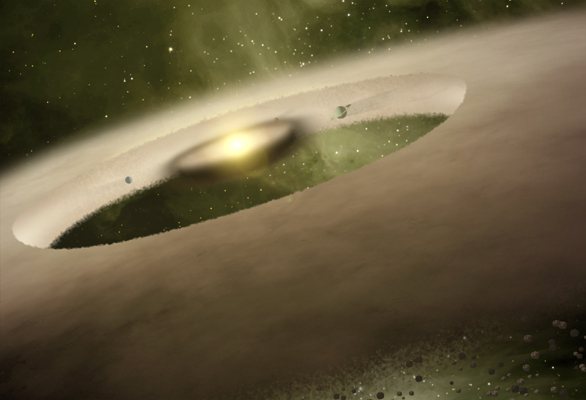
How often do stars eat their young? Almost never, according to a paper submitted to The Astrophysical Journal. While planets typically migrate inward due to the torque (or gravitational push) of the pancake-like proto-planetary disks of dust and gas in which they form (seen in this picture), what hasn’t been clear until now is what causes them to stop. In the new study, researchers ran computer simulations on 126 confirmed extrasolar planets detected by ground observatories and 649 candidate extrasolar planets detected by NASA’s Kepler spacecraft . Their results indicate that planetary migration is actually stopped by a gap that is created by the star’s accretion of material from the disk. There, the disk’s torque driving the planet’s inward migration disappears and the planet stabilizes in roughly a 4-day orbit (about 10 times the radius of a solar-type star). Based on their findings, the scientists conclude that cannibalized planets are extremely rare.
